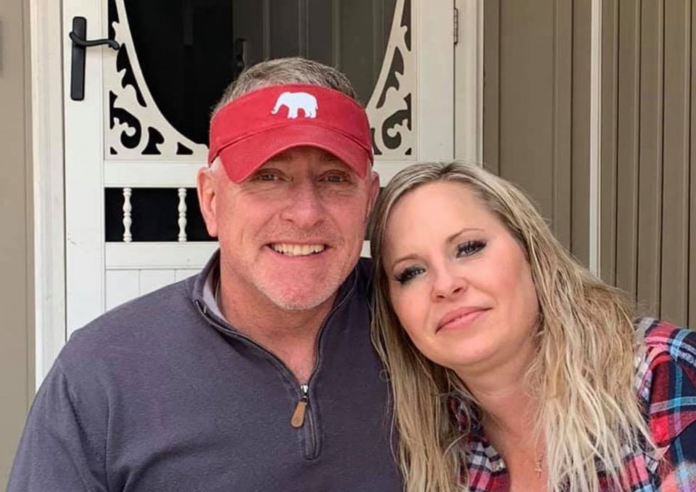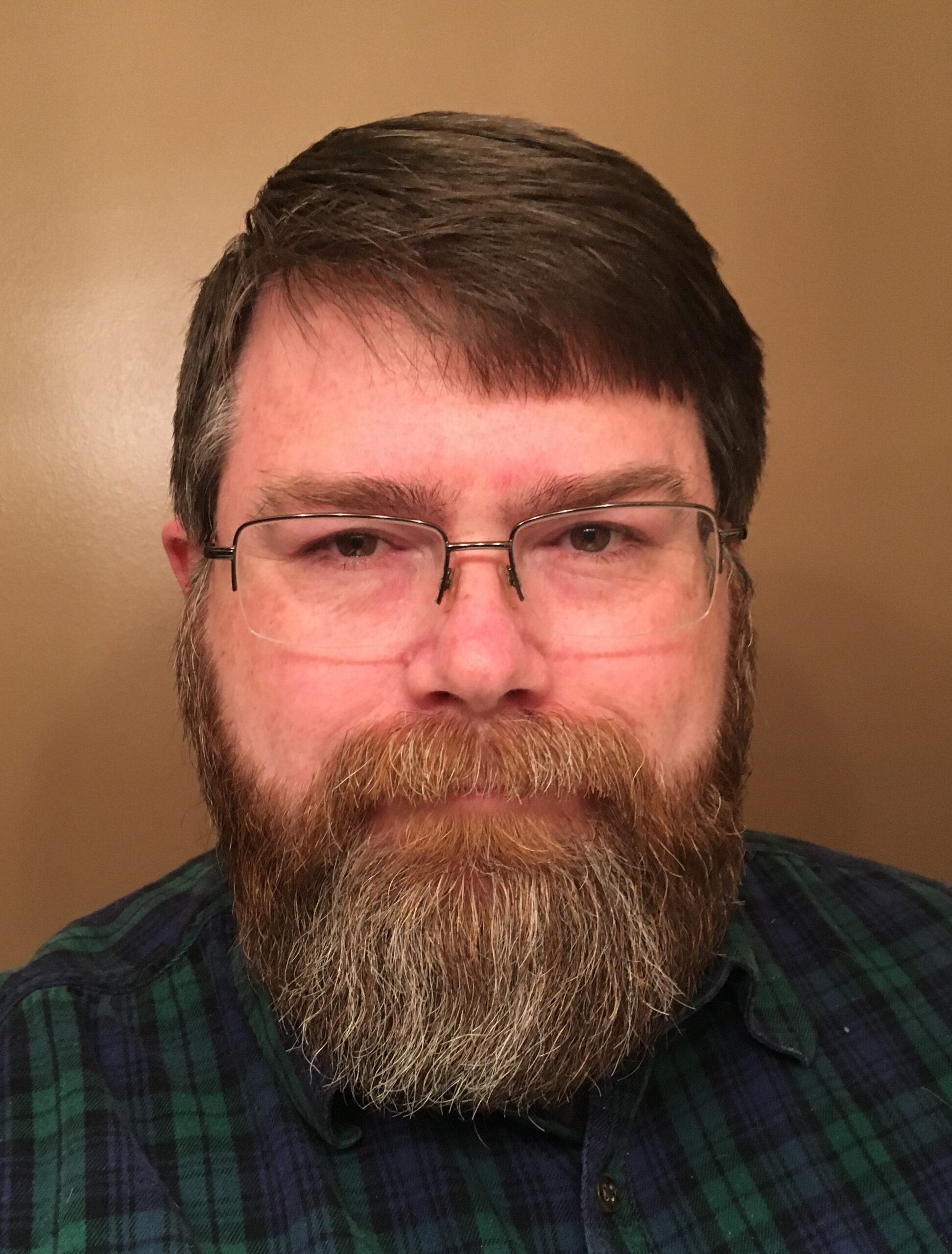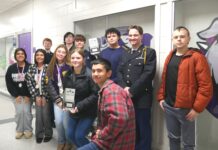
CULLMAN, Ala. – Saving Forgotten Warriors (SFW) announced last week its creation of the “800 Club,” a program to provide veterans with Post Traumatic Stress Disorder (PTSD) an opportunity for a better life by giving them access to Stellate Ganglion Block (SGB) shots, which have shown a high degree of success in relieving symptoms of PTSD. (See www.cullmantribune.com/2019/12/14/a-shot-at-hope-local-businessman-and-philanthropist-apel-donates-12k-to-launch-ptsd-program-with-saving-forgotten-warriors/.)
Unfortunately, the shots, which can cost $1,600 or more for civilians and are being offered to veterans for $800, are not currently covered by insurance, so SFW launched the club as a fundraising effort to provide for veterans who cannot afford the shot, and to transport them to Annapolis, Maryland, where the shot is being offered at the reduced cost.
Bo Winfrey, a Cullman businessman who, with wife Jen Winfrey, owns The Wacked Out Weiner and Yogurt Street, was deployed to Iraq with the Army National Guard as a communications technician during Operation Iraqi Freedom. There he saw things that he would rather not talk about, and he came home to live through years of nightmares, fears of being around crowds, and even suicidal ideation.
He told The Tribune, “We went over as communications, but after we got all our signal equipment set up, they put us on convoys going down to Kuwait and escorting fuel trucks, senators and just anybody and everybody. We were convoying every day.
“I won’t go into details, but some of the stuff I went through and seen, there was one certain thing that just stayed with me. And the nightmares, the sleeping three to four hours a night, and faking being happy where I work- because I’m a salesperson- I’d just come home and get alcohol, and come on the back deck and just sit here- didn’t want to be around my wife, my kids or nobody. It got to a point where, before the kids came over, they would call and say, ‘What kind of mood is Dad in?’”
Bottoming out and looking up
Winfrey’s condition led him to the lowest point of his life, as he explained, “I even had a plan: when my youngest daughter got 15, I was going to end it all.”
That daughter turned 15 this past May. Before that deadline passed, something important happened: Jen Winfrey, now Bo Winfrey’s wife, came into his life determined to help him find an answer for his struggles. She found one in the SGB shot and Dr. Sean Mulvaney, a former Navy Seal who has performed the complex procedure over 1,000 times at Regenerative Orthopedics and Sports Medicine in Annapolis.
On his website, Mulvaney described the procedure: “Stellate Ganglion Block (SGB) is proven to provide durable relief from symptoms of PTSD and may help in some anxiety states. During the SGB procedure, an injection of a long-acting local anesthetic, using ultrasound or (fluoroscopic) guidance, is made in the right side of the neck around the main nerve that controls the “fight or flight” response (the sympathetic nervous system). Multiple peer-reviewed medical studies show that a right-sided SGB results in significant long-term improvement in chronic anxiety symptoms associated with post-traumatic stress disorder (PTSD). The SGB takes less than 15 minutes to perform, and benefits are seen in as little as 30 minutes.”
Jen Winfrey explained the shot as a nerve block that temporarily numbs nerve endings in the part of the brain where PTSD symptoms originate.
She said, “How Dr. Mulvaney described it: he said it’s like you have a computer and you have this blue screen of death; can’t do anything. He said, ‘Your mouse is not working, your keyboard’s not working. And you’re going to go through and unplug it for a few minutes and plug it back in.’ He said, ‘That’s what we’re doing; we’re just rebooting your brain.’ And everything he said, happened.”
Bo Winfrey said that while his wife was studying PTSD, “One of her friends told her about this block. And so, she called the doctor and she set it up, and I still was telling her, ‘This ain’t going to work; there’s no help for me.’”
Winfrey’s doubts continued all the way to the doctor’s door, as he explained, “I’m telling you, the day of the procedure, when we walked out of the hotel, got in the car, headed to Dr. Mulvaney, and I said, ‘Babe, I don’t want to do this. It’s a waste of money; it’s not going to work.’
“She said, ‘Well, it’s done paid for,’ and I said, ‘Oh, my gosh,’ and at the time, I believed her. But, you know, we got through and she started paying, and I was like, ‘That was a nice trick!’ But I was laughing!
“Dude, I’m telling you, I wouldn’t go in a crowded place; I did, but I was always on my guard. And the very next morning after the shot, we went shopping right after the shot. And I hated shopping; I was always the type: ‘Hey, we’ve got to go. Let’s go, let’s go, let’s go.’ And I was in there; I didn’t say nothing. It didn’t bother me anymore.
“And the next morning, we went to eat. And I usually sat in the back of the restaurant, and I said, ‘Let’s sit here today.’ And we walked in and sat right in the middle of the restaurant, people to my back. And she even made the statement that morning, ‘It’s like I’m with a different person.’ And it’s been like that since.
“Dude, it saved my life; it really did.”
And now?
Said Winfrey, “As far as my sleep: seven, eight hours a night, every night, no nightmares. I still think about the things over there, but they don’t bother me, if that makes sense. It’s like any other thing that you see on a daily basis: you think about it if it stands out, but it ain’t got me just to where that’s all I’m thinking about, and my mind ain’t running 24/7.”
Jen Winfrey was a witness to the transformation. She told The Tribune, “Even his face looks different. He looks younger. His smile, his laugh is even different. I didn’t realize because I didn’t know him before (he developed PTSD), but his laugh is like a real laugh now, a true laugh.
“Usually, we’d go to a restaurant and he’d have to sit with his back to the wall so he could see everything. And that morning, we’re sitting in the middle, and he’s right there smiling, and I was like, ‘I feel like I have a Stepford wife. What’s going on?’ because he was just like so relaxed.
“I’m a shopper, but I knew when I was with him, I’d have two minutes or less in a store, you know what I mean? We had to get in and out because he just couldn’t stand it. While we were there (after the shot), I would have to drag him out because he was so happy, and he was talking to everyone! He’s just like a different person.”
Jen Winfrey continued, “He deals with everything so differently, now. Things that would usually bother him and he would dwell on it for days and days, he’ll be like, ‘Oh, well, you know, it’s fine now.’ You know what I mean? ‘Whatever!’
“Now, he’s just relaxed and chill. He’s the same person, but he’s a different person. He processes everything differently.”
A new mission
Winfrey’s experience with SGB not only helped him handle his PTSD, but it also gave him a new sense of purpose.
Winfrey shared, “That’s what I think my calling is: to help other veterans that was in that place where I was, because there’s a way out now besides suicide. And before I take my last breath, I want the 22 (veterans who commit suicide) a day to go way down.”
What would you tell a veteran who is struggling with PTSD and considering this treatment?
“I want them to know that they don’t have to live like that anymore. They can be happy. And, like I told the doctor after my procedure- I was bawling- I told him, ‘Hold on. This ain’t a sad cry; this is a happy cry!’ And I hugged him. I said, ‘I know one thing: suicide’s off the table now.’”
Winfrey has been on a mission to spread the word about SGB, and he helped SFW create the 800 Club.
He told The Tribune, “I tell everybody. Since the shot, I’ve been spreading the word, and people’s like, ‘Well, would it help me?’ And anybody: female, male or anybody that’s had a traumatic experience, that’s dealing with it, that has PTSD from that traumatic experience, they can have it done. It’s $1,600 a shot and, for veterans, he charges $800.”
The total cost for SFW’s first group of eight veterans, including transportation and lodging, is expected to come to approximately $12,000, or $1,500 per person. Apel Steel President Ronny Apel stepped up last week with a donation to cover the entire cost for the first trip.
Winfrey hopes to see the opportunity extended to as many veterans as possible, telling The Tribune, “I can’t say enough how it’s changed my life, and what bothers me so bad is the veterans out there that are where I was.”
SFW Director Jeremy Hogan previously told The Tribune, “This is going to be the biggest program Saving Forgotten Warriors has ever had. This will impact the state’s suicide rate, guaranteed. If we can get the local and state community on board on this…honestly, this is the program the state needs. I’m actually working on a program to get a doctor certified to give the shot here. I’m even offering to put it on the property that Saving Forgotten Warriors has. If we can do it, God willing, if we can raise the money. Every business in this county probably has a veteran. That veteran will benefit, and so will the business.”
How to donate or get help
SFW is a 501(c)(3) nonprofit, and any donation is tax-deductible. Donations can be mailed to P.O. Box 1002, Cullman, AL 35056. If you, or someone you know, is a veteran in need, contact SFW at 256-747-5006.
Copyright 2019 Humble Roots, LLC. All Rights Reserved.





















